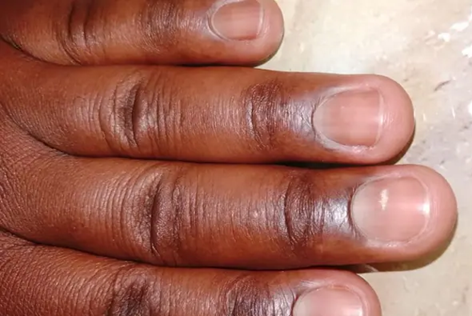Do you also touch your face again and again, the body secretly wants to say something special
- bySherya
- 07 Feb, 2025

Touching your face is a normal behavior, but if you are doing it repeatedly, or more than usual, then it could mean something more, so you must understand its meaning.

Touching your face: Have you ever wondered how many times you touch your face every day? According to research by German psychologists at Ruhr University in Bochum, Germany, this happens on average 50 times per hour, or up to 800 times a day. Julian Packheiser says that some of these touches, such as fixing your hairstyle or rubbing tired eyes, serve a practical purpose, but most are done without any specific reason.
Benefits of touching the face
Packheiser has been researching the health effects of touch and has published his findings in the German magazine 'Spektrum Psychologie'. He explains that unconscious facial touching can serve an important function. "According to recent theories, unconscious facial touching helps to reduce stress and regulate our emotional balance."
Reduces stress
Touch in general is known to promote good health. It can reduce anxiety, sadness and pain, and even maintain blood pressure. This doesn't just apply to contact with others, in a randomized control study conducted at Goethe University Frankfurt in 2021, researchers found that both touching others and touching yourself before a stressful situation had an impact on participants' stress levels.
It's also better not to touch your face
Those who were touched by others and those who touched themselves both had lower levels of the stress hormone cortisol in their blood afterward than those in the third untouched group. While it's sometimes better not to touch your face, which can contribute to the transmission of infections, it's not that simple. "Actively avoiding touching your face to reduce infection requires mental effort," the researchers write. So we have to do it consciously.
Julian Packheiser says that participants in the self-touching group did not always choose the face; some stroked their arm or placed their hands on their chest. Still, other research suggests that face touching is particularly frequent in stressful or cognitively demanding situations.
This is shown, for example, by a systematic review by a team of researchers from the Paul Flechsig Institute's Centre for Neuropathology and Brain Research, also at the University Hospital of Leipzig, published in 2021.
More research needed
"Although there is still limited research on self-touching, there is evidence that touching your face may reduce stress." Writing in Psychology Today magazine, former FBI behavior analyst Joe Navarro explains that the reasons for this preference are rooted in our body's structure.
Our faces are particularly rich in sensitive nerve endings that are directly connected to the brain. These nerves - particularly the fifth (trigeminal nerve) and seventh (facial nerve) nerves - enable touch on the face to reach the brain faster and more effectively than touch on other parts of the body.
According to Navarro, a gentle stroke on the cheek or a touch on the lips sends calming signals to the brain at lightning speed. This immediate effect is important because we need quick relief, especially in stressful moments. Touching your face calms the brain and helps restore inner balance. It also signals to others what is going on inside, whether someone is stressed and needs support
"So the next time your partner or colleague is repeatedly touching his or her nose, don't hesitate to ask if everything is OK," advises Julian Packheiser.
Disclaimer: Dear reader, thank you for reading this news. This news is written only to make you aware. We have taken the help of home remedies and general information in writing this. If you read anything related to your health anywhere, then definitely consult a doctor before adopting it.




